
Clinical and Experimental Hepatology
Scope & Guideline
Navigating the Complexities of Liver Health
Introduction
Aims and Scopes
- Clinical Research in Hepatology:
The journal publishes studies focused on clinical aspects of liver diseases, including diagnosis, treatment efficacy, and patient management strategies. - Molecular and Genetic Studies:
There is a significant emphasis on the molecular mechanisms underlying liver diseases, including genetic polymorphisms, biomarkers, and the role of microRNAs in hepatocellular carcinoma. - Innovative Diagnostic Techniques:
Research on new diagnostic modalities, such as imaging techniques and serum biomarkers, is a core area, aiming to enhance early detection and monitoring of liver conditions. - Therapeutic Approaches and Interventions:
The journal highlights innovative therapeutic strategies, including pharmacological treatments, surgical interventions, and novel therapeutic agents in the management of liver diseases. - Epidemiological Studies:
Epidemiological research concerning the prevalence and risk factors associated with liver diseases is frequently published, providing insights into public health implications. - Multidisciplinary Approaches:
The journal promotes studies that take a multidisciplinary approach to liver disease management, integrating perspectives from various fields such as nutrition, genetics, and immunology.
Trending and Emerging
- Precision Medicine and Personalized Treatment:
There is an increasing focus on precision medicine approaches in hepatology, tailoring treatment strategies based on genetic and molecular profiles of patients. - Role of Gut Microbiota in Liver Health:
Emerging research explores the relationship between gut microbiota and liver health, indicating a trend towards understanding the gut-liver axis in liver disease. - Long-term Outcomes and Quality of Life in Hepatology:
Studies assessing long-term outcomes and health-related quality of life for liver disease patients, particularly post-transplant and after antiviral therapy, are gaining traction. - Non-alcoholic Fatty Liver Disease (NAFLD) Research:
Research on NAFLD, particularly its metabolic implications and management strategies, is becoming increasingly prominent, reflecting its rising prevalence. - Innovations in Imaging Techniques:
There is a growing interest in advanced imaging modalities, such as elastography and radiomics, for the assessment and management of liver diseases.
Declining or Waning
- Traditional Hepatitis Treatment Protocols:
Research focusing solely on older hepatitis treatment protocols has decreased as newer direct-acting antiviral therapies gain prominence and effectiveness. - Basic Science Studies without Clinical Application:
There has been a noticeable decline in purely basic science studies that do not directly correlate with clinical applications or patient outcomes. - Invasive Diagnostic Techniques:
As non-invasive methods for liver disease assessment gain traction, studies centered on invasive techniques such as liver biopsy have become less common. - Liver Disease in Non-viral Contexts:
Interest in liver diseases unrelated to viral infections, such as autoimmune hepatitis or genetic liver diseases, appears to be waning compared to the robust focus on viral hepatitis and its complications. - Generalized Nutritional Studies:
Research on general nutritional interventions without specific relevance to liver disease management has decreased, as the focus narrows to targeted nutritional strategies.
Similar Journals
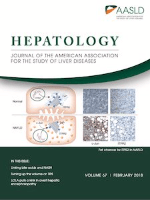
HEPATOLOGY
Pioneering innovative solutions for liver health challenges.HEPATOLOGY is a premier scholarly journal dedicated to advancing the field of liver research and clinical practice. Published by Lippincott Williams & Wilkins, this journal boasts an impressive impact factor and holds a prestigious position as one of the top-ranked publications in both Hepatology (Q1) and Medicine (miscellaneous, Q1) categories as of 2023. HEPATOLOGY, with its commitment to disseminating high-quality research since its inception in 1981, serves as an essential platform for researchers, clinicians, and students focusing on liver diseases, including hepatitis, cirrhosis, and liver cancer. The journal's editorial board comprises leading experts who guide the publication towards its objective of fostering innovation and collaboration in this critical area of health. Although it does not offer an open access model, HEPATOLOGY ensures that its comprehensive analyses, reviews, and groundbreaking studies are accessible to the global medical community. Join the discourse in hepatology and be a part of a transformative journey through this indispensable resource.

Cellular and Molecular Gastroenterology and Hepatology
Connecting global researchers to vital discoveries.Cellular and Molecular Gastroenterology and Hepatology, published by Elsevier Inc, is a premier Open Access journal dedicated to advancing the understanding and treatment of gastrointestinal and liver diseases. Since its inception in 2015, this journal has established itself as a leading publication within its field, boasting impressive metrics with a 2023 Q1 ranking in both Gastroenterology and Hepatology. It ranks #10 out of 167 in Gastroenterology and #11 out of 82 in Hepatology on Scopus, placing it in the 94th and 87th percentiles, respectively. This journal aims to disseminate high-quality, peer-reviewed research that fosters innovative solutions for clinical challenges, making it an invaluable resource for researchers, healthcare professionals, and students alike. With open access, all published content is readily available to a global audience, ensuring that critical findings in cellular and molecular biology related to gastroenterology and hepatology reach those who can benefit the most from the latest advances in the field. For more information, please visit us at our address in San Diego, CA, or explore our articles online.
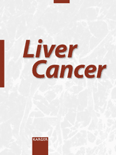
Liver Cancer
Fostering collaboration in the fight against liver cancer.Liver Cancer is a premier, peer-reviewed journal dedicated to the comprehensive study and advancement of knowledge surrounding liver neoplasms. Published by KARGER and headquartered in Switzerland, this journal has been an open-access platform since 2012, providing researchers with invaluable insights into the rapidly evolving field of hepatology and oncology. With an impressive impact factor that places it in the Q1 category for both Hepatology and Oncology in 2023, Liver Cancer stands out as a high-impact conduit for groundbreaking research, ranking #19 out of 404 in Medicine _ Oncology and #6 out of 82 in Medicine _ Hepatology according to Scopus. Researchers, practitioners, and students are encouraged to engage with the journal's content, which encompasses clinical studies, basic research, and reviews that contribute significantly to understanding liver cancer dynamics, diagnosis, and treatment strategies. This journal not only facilitates the dissemination of knowledge but also fosters collaboration in a well-established and impactful global scientific community.
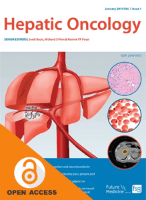
Hepatic Oncology
Unlocking Insights in Liver Cancer Diagnosis and CareHepatic Oncology is a premier Open Access journal published by Future Medicine Ltd that specializes in the critical intersection of hepatology and oncology. With a focus on advancing knowledge in the diagnosis and treatment of liver cancers, the journal provides a platform for innovative research, reviews, and clinical perspectives that serve as a valuable resource for researchers, clinicians, and students alike. Established in 2016 and evolving over the years, Hepatic Oncology underscores its commitment to accessible scientific communication, having transitioned to open access in 2018 to reach a broader audience. The journal holds a Q4 quartile ranking in the fields of hepatology and oncology for 2023, reflecting its emerging influence and role in contemporary research. Through high-quality articles and a focus on real-world applications, Hepatic Oncology aims to bridge gaps in knowledge while fostering collaboration among professionals dedicated to enhancing patient care in hepatic malignancies.
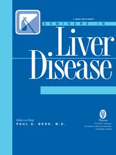
SEMINARS IN LIVER DISEASE
Championing knowledge for a healthier liver future.SEMINARS IN LIVER DISEASE is a premier journal dedicated to advancing the field of hepatology, published by THIEME MEDICAL PUBL INC. Established in 1981, it has become a respected resource within the academic community, providing high-quality peer-reviewed articles that cover a broad range of topics related to liver diseases. With an impressive impact factor and recognized as a Q1 journal in the hepatology category, it ranks 17th out of 82 journals in the field, placing it in the top 21% of its category according to Scopus rankings. Although it does not offer open access, the journal’s rigorous standards and extensive network ensure that it reaches a wide audience of clinicians, researchers, and students, fostering knowledge and innovation in liver disease management. The journal's objectives focus on disseminating critical insights and promoting informed discussions that can pave the way for future research and clinical advancements in hepatology.
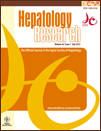
HEPATOLOGY RESEARCH
Empowering global knowledge on liver disease and infections.Hepatology Research, ISSN 1386-6346 and E-ISSN 1872-034X, is a premier academic journal published by Wiley that serves the dynamic fields of Hepatology and Infectious Diseases. With an impressive 2023 impact factor and ranked Q2 in Hepatology and Q1 in Infectious Diseases, this journal stands out as a vital resource for researchers, professionals, and students. Covering a broad spectrum of topics related to liver health, the journal aims to disseminate cutting-edge research and insights from the converged years of 1997 to 2024. As an open-access platform, it fosters the global sharing of knowledge, providing valuable access to pioneering studies that address pressing issues in liver disease and its associated infections. Based in the United Kingdom, at 111 River St, Hoboken, NJ, Hepatology Research is pivotal for advancing scientific understanding and improving patient outcomes worldwide.

Clinical and Experimental Gastroenterology
Empowering clinicians with cutting-edge insights in gastroenterology.Clinical and Experimental Gastroenterology is a prestigious Open Access journal published by DOVE MEDICAL PRESS LTD, dedicated to advancing the field of gastroenterology through rigorous research and innovative insights. With its ISSN 1178-7023, the journal has established a significant presence since its inception in 2008 and has been actively contributing to the academic landscape from New Zealand. The journal has attained a commendable Q2 rank in the Gastroenterology category as of 2023, placing it in the upper-tier percentile of similar journals. It currently ranks #57 out of 167 in the Scopus database, highlighting its relevance and impact in the field at the 66th percentile. Encompassing a wide range of topics within gastroenterology, the journal aims to foster discussion and disseminate findings that enhance clinical practices and patient care. Researchers, healthcare professionals, and students alike will find this journal an invaluable resource for cutting-edge research and developments in gastrointestinal health.
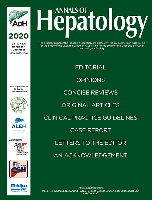
Annals of Hepatology
Pioneering discoveries in hepatology for a healthier tomorrow.Annals of Hepatology is an esteemed open-access journal dedicated to the dynamic field of liver research and hepatology. Published by Elsevier España since 2002, this journal has established itself as a pivotal resource for researchers and clinicians alike, boasting a remarkable impact in the medical community with its 2023 rankings placing it in the Q2 quartile for Hepatology and Q1 quartile in Medicine (Miscellaneous). With an impressive Scopus rank of #20 out of 82 in the field of Hepatology and a notable 76th percentile standing, the journal is committed to disseminating high-quality, peer-reviewed articles that advance the understanding of liver diseases and their management. The editorial scope encompasses a broad range of topics, including liver pathology, therapeutic interventions, and public health implications related to hepatic disorders. Researchers, healthcare professionals, and students interested in the latest advancements in hepatology will find Annals of Hepatology an invaluable platform for sharing and accessing knowledge, with the convenience of open access enhancing global visibility and collaboration in this critical field of medicine.

World Journal of Hepatology
Transforming liver disease understanding through open access.World Journal of Hepatology is a premier academic journal dedicated to advancing the field of hepatology. Published by BAISHIDENG PUBLISHING GROUP INC, this journal serves as a crucial platform for disseminating innovative research findings and critical reviews from around the globe. With its ISSN 1948-5182 and E-ISSN 1948-5182, the journal has established a notable presence since its inception in 2009, covering a wide range of topics relevant to liver diseases, including but not limited to hepatitis, liver cancer, and metabolic liver disorders. Currently ranked 41/82 in the field of hepatology by Scopus, representing the 50th percentile, it has achieved a Q3 quartile ranking in the 2023 category, underscoring its growing influence in the medical community. With a commitment to open access for its readership, the World Journal of Hepatology enriches the global discourse on liver health and disease management, making it an essential resource for researchers, clinicians, and students alike.

Journal of Hepatocellular Carcinoma
Transforming research into impactful liver cancer therapies.The Journal of Hepatocellular Carcinoma is a pivotal open-access publication dedicated to advancing the field of hepatocellular carcinoma research. Published by DOVE MEDICAL PRESS LTD since 2014, this journal seeks to disseminate high-quality articles that explore innovative treatments, clinical trials, and emerging research in the context of liver cancer. With its ISSN: N/A and E-ISSN: 2253-5969, the journal is optimized for a global audience, ensuring accessibility to a broad spectrum of researchers, healthcare professionals, and students engaged in oncology and hepatology. While its Scopus ranking places it in the lower quartiles of the respective fields, the journal continues to strive for growth and visibility in a rapidly evolving landscape. The Journal of Hepatocellular Carcinoma is an essential resource for anyone seeking to enhance their understanding of liver diseases and contribute to the fight against hepatocellular carcinoma.